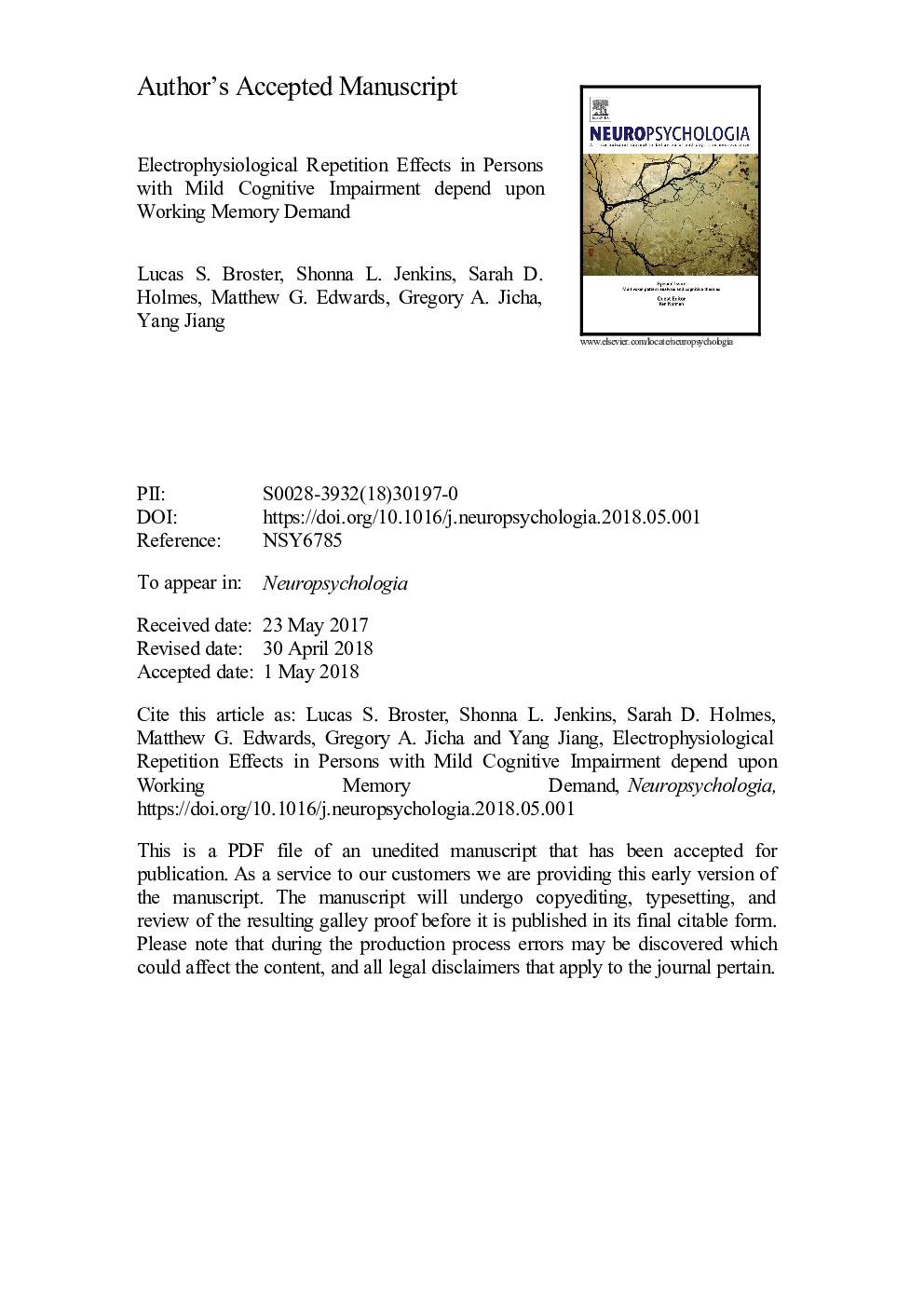| Article ID | Journal | Published Year | Pages | File Type |
|---|---|---|---|---|
| 7317113 | Neuropsychologia | 2018 | 38 Pages |
Abstract
Forms of implicit memory, including repetition effects, are preserved relative to explicit memory in clinical Alzheimer's disease. Consequently, cognitive interventions for persons with Alzheimer's disease have been developed that leverage this fact. However, despite the clinical robustness of behavioral repetition effects, altered neural mechanisms of repetition effects are studied as biomarkers of both clinical Alzheimer's disease and pre-morbid Alzheimer's changes in the brain. We hypothesized that the clinical preservation of behavioral repetition effects results in part from concurrent operation of discrete memory systems. We developed two experiments that included probes of emotional repetition effects differing in that one included an embedded working memory task. We found that neural repetition effects manifested in patients with amnestic mild cognitive impairment, the earliest form of clinical Alzheimer's disease, during emotional working memory tasks, but they did not manifest during the task that lacked the embedded working memory manipulation. Specifically, the working memory task evoked neural repetition effects in the P600 time-window, but the same neural mechanism was only minimally implicated in the task without a working memory component. We also found that group differences in behavioral repetition effects were smaller in the experiment with a working memory task. We suggest that cross-domain cognitive challenge can expose “defunct” neural capabilities of individuals with amnestic mild cognitive impairment.
Keywords
Related Topics
Life Sciences
Neuroscience
Behavioral Neuroscience
Authors
Lucas S. Broster, Shonna L. Jenkins, Sarah D. Holmes, Matthew G. Edwards, Gregory A. Jicha, Yang Jiang,
